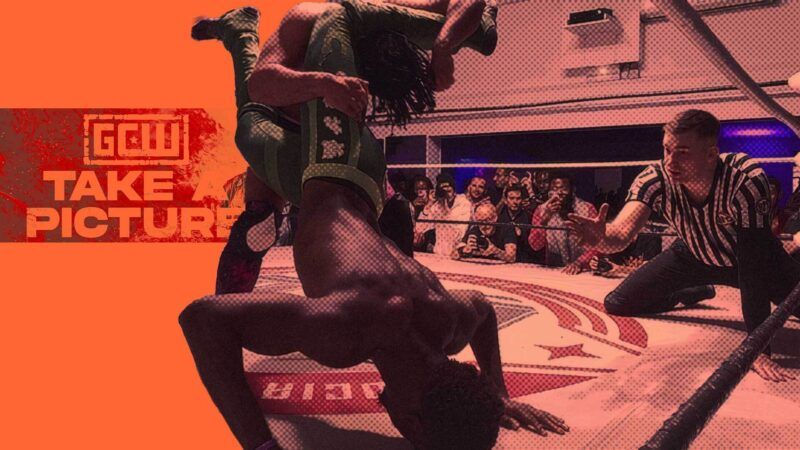State Regulations Make Wrestling Less Fun
Missouri's denial of Miyu Yamashita's wrestling license, despite a valid work visa, is a microcosm of overregulation that hurts professional wrestlers and the industry across the country.

The Missouri Athletic Commission denied professional Japanese wrestler Miyu Yamashita a license to wrestle in her tag team championship match on Sunday. Yamashita, who has a valid work visa and has participated in several matches across the country, including two in Missouri in 2023, does not have a Social Security number, which led to her denial hours before the match, according to Game Changer Wrestling (GCW), the company hosting the event.
Yamashita's situation highlights the complex regulatory landscape that professional wrestlers must navigate in the United States. Professional wrestling includes elements of athletic performance in matches, yet regulators still largely treat professional wrestling as a performance art. This means wrestlers, promoters, and referees typically need licenses to work, which can vary significantly depending on the state.
A wrestler with events in three different states in the same month might need three different licenses, all of which have separate and distinct requirements. For example, Kentucky requires a Social Security number on its licensing form, but Maryland (and Missouri, notably) does not. Alabama requires proof of legal presence, which includes a work permit. Oklahoma does not require either, and applicants can receive licenses on the same day they submit their application.
In Kentucky, wrestlers must submit proof they received a physical within the last 90 days; in Maryland, the period is within 30 days. This means a wrestler from Louisville who gets a physical on March 1, satisfying Kentucky's 90-day requirement, cannot, on May 15, travel to Baltimore to compete without first going to a doctor.
In the District of Columbia, regulations that performers called "inconsistent," "hyper-vague," and "unclear" imposed by the city's Combat Sports Commission disproportionately burdened smaller promoters and rendered operating wrestling events in the city financially unviable. Lo McGrath and Billy Dixon, owners of an independent professional wrestling company that organized events in the city, told the Washington City Paper that a sold-out event in southeast Washington, D.C., which drew 400 attendees, would pull in about $5,000 in ticket sales. Despite this success, Dixon and McGrath would only see about $700 after expenses, including wrestlers' fees, commission charges, insurance, and taxes.
On top of this, pre-event medical screenings were often conducted publicly, with wrestlers undergoing blood pressure tests and other evaluations in full view of incoming audiences. When McGrath and Dixon raised concerns, the commission suggested they scale down event size or increase ticket prices to charge more than double the price of major wrestling events like World Wrestling Entertainment. The two ultimately decided to move their events to Maryland.
Yamashita's experience and the lack of consistency or transparency in Missouri's licensing denial reflect the arbitrary nature of licensing enforcement. Putting aside her previous events in the state, GCW owner Brett Lauderdale alleges that Total Nonstop Action Wrestling hosted a two-day event in March in St. Joseph, Missouri, that featured wrestlers without Social Security numbers.
There's no benefit to involving regulators in professional wrestling for performers, promoters, or the audience. After participating in previous matches that featured winnings up to $800,000, Yamashita has now lost out on a valuable opportunity in a tag title match that GCW had promoted since May 25. Her promoter lost the chance to market one of his biggest stars, and attendees were denied the opportunity to see a fan favorite.


Show Comments (7)